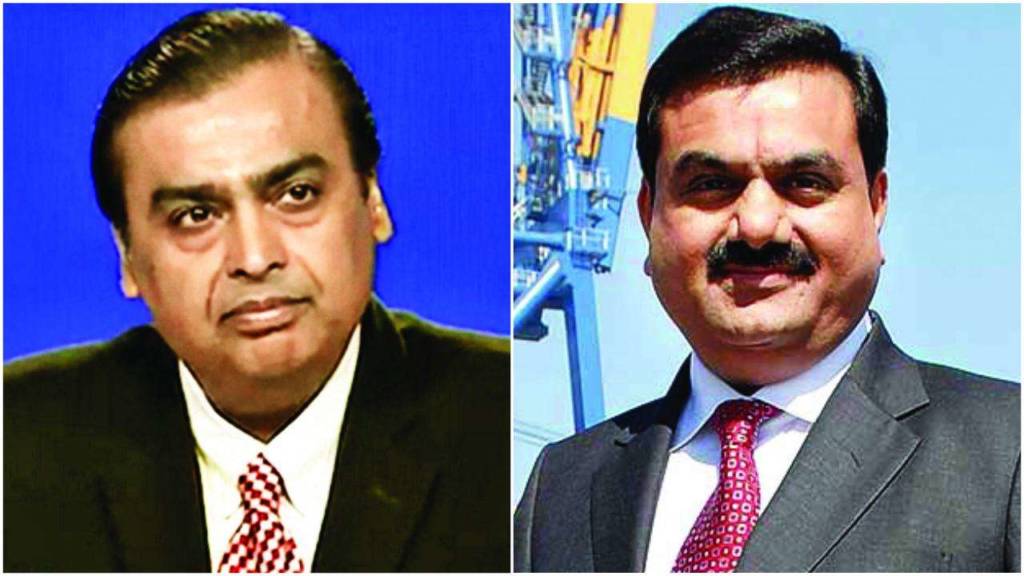The names of Indian business tycoons Mukesh Ambani and Gautam Adani are often taken in the same breath and the duo has been considered as the business tycoons of ‘New India’, replacing Tata and Birla, the names which symbolized excessive wealth in ‘socialist India’. In the past, Adani and Ambani seldom competed with each other, as both of them operated in different industries during their careers so far. The people of the country have not witnessed this ‘Clash of the Titans’, but this iconic clash is going to happen very soon and it will be big. For the first time, Adani and Ambani will be competing ferociously in the same segment- India’s data center market. Indian markets must brace for cut-throat competition between Adani and Ambani as the two business tycoons set up to drive a revolution in India’s data localisation story while the Indian government asserts the country’s data sovereignty.
The Adani group has plans to build data parks in the Southern states of India with an investment worth 700 billion rupees ($10.2 billion) in the next two decades. Billionaire Gautam Adani’s conglomerate plans to sell data storage services to global firms like Google, Facebook and Amazon. The global IT firms bet big on the rising Indian demand for smart phones and internet data, and given the firm stance of the Modi government on data localisation, soon these giant firms will need data storage facilities in India if the government moves forward with the Personal Data Protection Bill. Indian business tycoon, Gautam Adani intends to capitalise on this opportunity, and so does Mukesh Ambani.
Mukesh Ambani’s Reliance Industries Ltd has announced that it will build data centers across the country in collaboration with Microsoft’s Azure cloud. “In this new world, data is the new oil. And data is the new wealth. India’s data must be controlled and owned by Indian people and not by corporates, especially global corporations,” said Mukesh Ambani at the Vibrant Gujarat summit.
According to experts, the duo’s entry in the data center market is fueled with different reasons. “RIL wants to be a large and leading digital-telco player in India, which is going to involve a lot of vertical and horizontal integration. Data centres is part of this integration, which he (Ambani) now looks to offer to third parties in order to achieve benefits of scale. This is akin to warehouse; initially captive and now third party,” said Nitin Bhasin, head of research for Ambit Capital.
He said, “The Adanis might be looking at it from an infrastructure or purely real estate play, not as services or a digital game. Both are definitely chasing Amazon and Google but are approaching with different mindsets.”
Not just the entry of both groups is fueled by different reasons. But the leaders of both groups have different managerial styles and the styles of governance could determine who may have the upper hand, and who may win in this tussle.
The aggressive entry into the data storage market by the Adani group is line with the group’s operating habit. The company always opts for the ‘first mover’s advantage’ in the sectors prioritized by the government. The business giant adopted the same strategy in ports, special economic zones (SEZs) and many other businesses.
On the other hand, the leadership style of Mukesh Ambani epitomizes the traditional Indian style: running a Hindu undivided family business. He involves himself in every large-scale project, and is known for his ability to visualize, conceive and implement mega projects down to the last screw and nail. He is known to work towards monopoly in the markets, similar to his father. In the early days of the business, Mukesh Ambani’s father, Dhirubhai Ambani monopolized the thread-making business, and now he is himself doing the same in the telecommunication market.
So far, the Indian market has been dominated by Amazon Web Services (AWS) and Google and these companies charged high prices due to lack of competition in the market. But with the entry of domestic conglomerates, the rules of the game will no longer be the same. “Cloud players like AWS and Google will have to come up with new, perhaps cheaper pricing models for India,” said Satyajit Sinha, an analyst at tech consultancy Counterpoint.
The data storage race is the new attraction for businessmen in India and the data market is expected to grow to 5.6 billion dollars in next five years. The Indian data server market is expected to grow at 20 per cent in the next quarter. The increasing competition in the data storage sector will bring prices down, and improve the quality of infrastructure. The fall in data storage prices will help IT startups- which are expected to spend a good amount of budding capital on data storage.
The Modi government has drafted 2018 Personal Data Protection Bill for mandatory data storage in the country. Indian government has made it very clear to Information Technology multinationals that information shared by Indian users must be stored locally. The Modi government stood firm on its stance despite opposition from American technology majors and the Trump led US government. The Indian industrialists including Adani and Ambani firmly stood behind the Modi government and backed its decision to assert India’s data sovereignty and will open up a massive data storage market with tremendous potential in India that top billionaires of India will be foolish not to invest in. Ambani and Adani have entered the race with huge capital in hand and it remains to be seen who among the two tycoons prevails in this clash of the titans.
